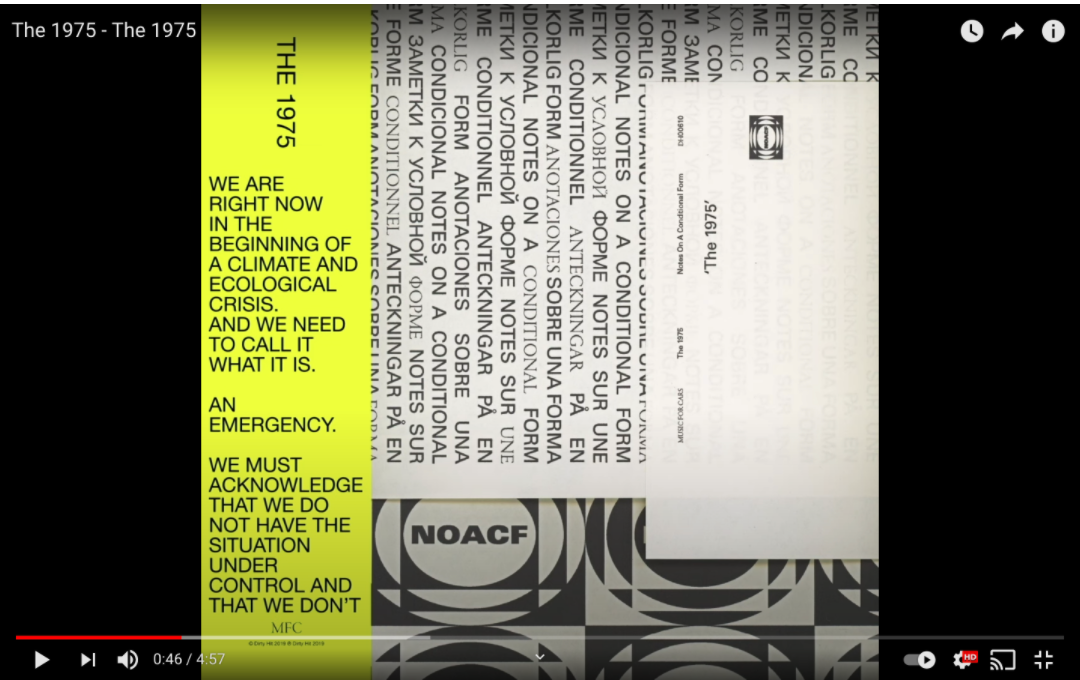Teach This Poem, though developed with a classroom in mind, can be easily adapted for remote learning, hybrid learning models, or in-person classes. Please see our suggestions for how to adapt this lesson for remote or blended learning. We have also noted suggestions when applicable and will continue to add to these suggestions online.

Show your students this excerpt of a speech by Greta Thunberg with music by The 1975, you may want to begin the video at 2:07 and end it at 3:15.
The following activities and questions are designed to help your students use their noticing skills to move through the poem and develop their thinking about its meaning with confidence, using what they’ve noticed as evidence for their interpretations. Read more about the framework upon which these activities are based.
-
Warm-up: (free-write) What is one thing you would like to tell someone in the future?
-
Before Reading the Poem: Show your students this excerpt of a speech by Greta Thunberg with music by The 1975 (Teachers, you may want to begin the video at 2:07-3:15). After viewing this video, share what stood out to you. What was the most memorable line? Why?
-
Reading the Poem: Read the poem “Letter to My Great, Great Grandchild” by J. P. Grasser silently. What do you notice about the poem? Annotate for any words or phrases that stand out to you or any questions you might have.
-
Listening to the Poem (enlist two volunteers to read the poem aloud): Listen as the poem is read aloud twice, and write down any additional words and phrases that stand out to you. Or, opt to listen to the poet read the work aloud.
-
Small-group Discussion: Share what you noticed in the poem with a small group of students. Based on the details you just shared with your small group, and your observations about “Notes on a Conditional Form,” how does this poem relate to climate change? What does the speaker in the poem want to tell their great, great grandchild? Why?
-
Whole-class Discussion: What are some specific things that the speaker recounts that have disappeared? How might the world be different without these things? Because of climate change, what is immediately disappearing in our world? What are the effects?
-
Extension for Grades 7-8: Imagine what the great, great grandchild might say in response to this poem. Write back. If you need inspiration, read more about epistolary poems.
- Extension for Grades 9-12: Grasser’s poem won the Treehouse Climate Action Poem Prize. Read more about the prize, then read the original poem that inspired Grasser’s poem. Participate in a discussion about how these two poems might be a conversation. Or, read the other poems that have received the prize here and here. Write your own poem about climate justice.
“We encourage a more explicit linking of conservation science and poetry by engaging scientists in poetic practice that can shape their work and believe this goes beyond wilderness literature, nature poems, and ecocriticism to consider how scientists can learn from creative practices in poetry to enhance their scientific practice.” Read the essay “Poetry as a Creative Practice to Enhance Engagement and Learning in Conservation Science,” originally published in the peer-reviewed journal BioScience.
This week’s poetic term is epistolary poem, referring to poems of direct address that read as letters. Read more.
